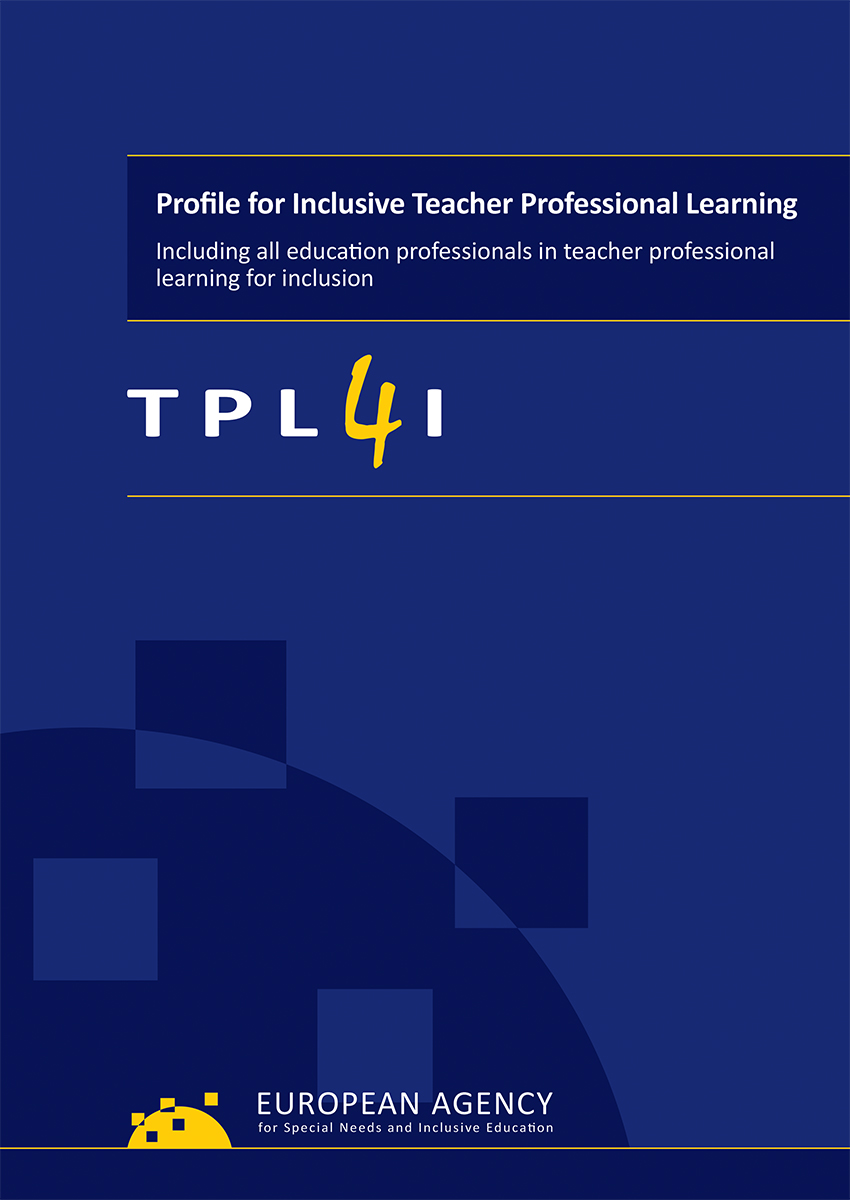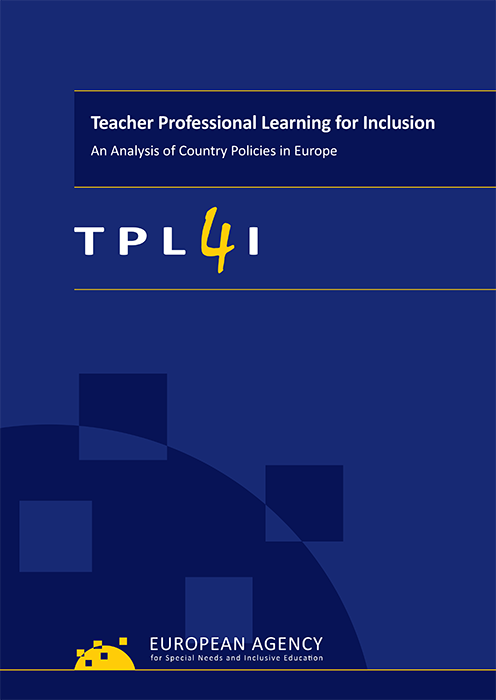To make inclusive education a reality, all teachers must be prepared to support all learners. Teachers need to be aware of the vision for inclusive education and their role in achieving it. Policy frameworks for developing inclusive education systems should therefore include teacher professional learning (TPL) for inclusion to support teachers and all education professionals working with teachers to achieve inclusive education competences.
The main tools developed in the course of the Teacher Professional Learning for Inclusion (TPL4I) project are the Policy Self-Review Tool and the Profile for Inclusive Teacher Professional Learning.
Project framework
Within the project, the term ‘teacher professional learning’ covers the full TPL continuum, from initial teacher education through to continuing professional development, including induction and in-school learning opportunities.
The project is concerned with all teachers in early, primary, secondary, vocational and adult education, as well as teacher educators, and specialists collaborating with classroom or subject teachers. It is also concerned with all learners, including those of migrant, refugee or disadvantaged socio-economic backgrounds, those with disabilities and non-native language speakers. The term ‘teacher professional learning for inclusion’ refers to the broadest scope of education professionals working with the broadest scope of learners.
The project started in 2018 and concluded in mid-2022.
Aims
Phase 1 of the TPL4I project aimed to develop a policy framework for preparing all teachers to include all learners. It examined the following initial questions:
- What current policy priorities for TPL can be identified in international and European-level documents and in the research literature?
- What national policy frameworks for TPL are in place in participating Agency member countries and how are these situated within different national contexts (i.e. within ministries, qualifications agencies, professional bodies, etc.)?
- What policy elements/frameworks are needed to prepare all teachers to include all learners?
- What policy priorities for TPL for inclusion need further investigation at European level?
Phase 2 of the TPL4I project aimed to revisit the Profile of Inclusive Teachers (2012) and develop a competence framework for all education professionals involved in inclusive education, which was found to be missing in TPL policy in Europe.
Phase 1 (2018–2020)
The first phase of the TPL4I project involved 26 Agency member countries in an exploration and analysis of national policies on TPL for inclusion. Phase 1 produced:
- a literature review on international policy for TPL for inclusion and research policy recommendations;
- policy mapping grids outlining countries’ policy information on TPL for inclusion;
- a policy self-review tool for TPL for inclusion based on the initial mapping grid;
- a project synthesis report summarising policy development in Europe;
- a methodology report describing the approach behind the TPL4I work;
- a final summary report covering phase 1 findings.
Phase 2 (2021)
The findings of phase 1 of the TPL4I project suggest that the Agency’s Profile of Inclusive Teachers (2012) remains a useful tool for TPL policy development. The Profile highlights the essential core values of initial teacher education and competence areas for inclusive teachers.
In 2021, its broader use was further explored to cover the full continuum of TPL for inclusion and to inform related policy discussions. New activities were set up to revisit the Profile of Inclusive Teachers, its relevance and application across the TPL for inclusion continuum. Activities involved a conceptual working paper, a country survey, and a cluster activity leading to the Profile for Inclusive Teacher Professional Learning for all education professionals.
- The Aligning Competence Frameworks for Teacher Professional Learning for Inclusion conceptual working paper identified the key questions to address in the development and alignment of competence frameworks for inclusion.
- The survey for countries explored the use of standards and competence frameworks for diversity and inclusion for teachers and other professionals. It examined the relevance of the Profile’s core values and competence areas for all teachers at all stages of the profession and among interdisciplinary groups of education professionals supporting teachers. It also inquired about experiences with the Profile of Inclusive Teachers. Seventeen Agency member countries participated in the survey.
- In workshops and focus groups, the cluster activity invited country representatives and experts from six participating countries to consider the Profile’s core values and competence areas for teachers’ and other education professionals’ professional learning for inclusive education at all levels of an inclusive education system’s development.
- The analysis of the survey and the cluster activity contributed to the final outcome: the Profile for Inclusive Teacher Professional Learning. This new Profile builds upon the 2012 Profile of Inclusive Teachers, which remains a key competence framework for initial teacher education. The Profile for Inclusive Teacher Professional Learning aims to inspire a wider range of TPL for inclusion opportunities and to address all education professionals involved.
- An infographic offers a visual overview of key messages from phases 1 and 2 of the project, as a reminder that TPL for inclusion is an essential part of inclusive education systems development.
- The TPL4I project concluded with a phase 2 methodology and implementation report, Developing the Profile for Inclusive Teacher Professional Learning.


